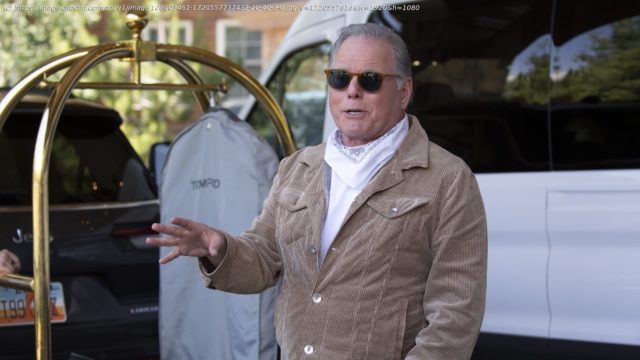In the last five years, every large media merger has led to tens of billions in lost value for shareholders.
Comcast Chief Executive Officer Brian Roberts had a not-so-subtle message this week for Warner Bros. Discovery CEO David Zaslav: If you’re selling, I’m not buying.
«Instead of engaging in a process to buy content companies, we have focused primarily on organic opportunities like the NBA», Roberts said Tuesday during Comcast’s second-quarter earnings conference call.
If you ask Zaslav, though, the reason Roberts and other potential buyers of media assets aren’t interested is because the government has scared them away.
Zaslav earlier this month publicly stated a theme that many legacy media executives have privately said for years: The current U.S. administration has stymied deal-making, and business leaders are desperate for the next U.S. president to usher in more mergers and acquisitions.
«We just need an opportunity for deregulation, so companies can consolidate and do what we need to be even better», Zaslav told reporters at Allen & Co.’s annual Sun Valley conference.
Roberts’s disinterest and Zaslav’s lament shine a light on a fundamental question that may determine the future of the media and entertainment industry: Do the biggest media and technology companies want to buy smaller rivals for their content and can’t do so because of overly stringent regulations, or are they simply uninterested in the assets?
Exhibit A: During months of Paramount Global sale conversations, controlling shareholder Shari Redstone engaged with dozens of potential buyers before landing on a deal with Skydance Media, a relatively small studio that earlier this month agreed to buy a controlling stake in Paramount without acquiring the entire company.
Redstone received scant interest from big media and tech players who could have used her company’s movie and TV studio and library to bolster their own streaming services, according to people familiar with the matter. The sale process proved the largest media and technology didn’t want Paramount.
Other companies, such as Starz, AMC Networks and Vice Media, have also searched for deeper-pocketed buyers and come up empty.
There are two plausible explanations for why larger media and technology companies aren’t interested, said Rob Kindler, global chair of M&A at the law firm Paul, Weiss.
«Either they don’t want the assets, or they’ve decided the regulatory hurdles are too high», Kindler said.
A push toward deregulation will give the media industry more clarity. It’s possible technology and the largest entertainment companies have sworn off significant media assets as acquisition targets given the governmental red tape around antitrust, national security and antiquated communications rules.
Or, perhaps, legacy media companies are simply undesirable assets to own.
Zaslav’s perspective stems from his own experience. He extended the life of his previous company, Discovery Communications — and probably his own tenure running a media company — by merging it with AT&T’s WarnerMedia in 2022. Without a deal, Discovery would have wallowed as a subscale content provider and owner of declining cable networks.
Now, Zaslav sees the same dynamic repeating with Warner Bros. Discovery, whose shares have fallen 36% in the past year as the company focuses on turning its flagship streaming service Max into a globally profitable business and grapples with the possibility of losing NBA media rights after nearly 40 years as a partner.
One way of doing that would be to find an acquirer with a trillion-dollar valuation to help pay for expensive content, such as Amazon, Apple or Google. Zaslav could also merge Warner Bros. Discovery with another legacy media company, such as Paramount Global, Fox or Disney, or NBCUniversal, if it were spun off from Comcast.
Домой
United States
USA — Financial Warner Bros. Discovery is counting on deregulation to unlock media deals —...






